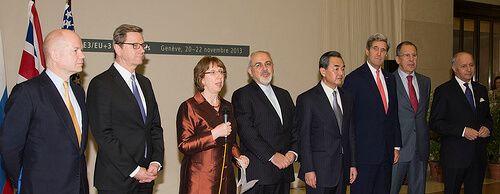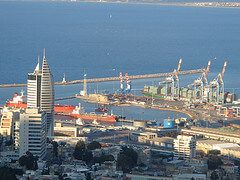 Everything you need to know about today’s coverage of Israel and the Mideast. Join the Israel Daily News Stream on Facebook.
Everything you need to know about today’s coverage of Israel and the Mideast. Join the Israel Daily News Stream on Facebook.
Today’s Top Stories
1. Christians should take note of a brewing controversy in the PA. Mahmoud Abbas wants to remove religious affiliation from Palestinian identity cards, but he’s getting resistance from Hamas and others. Khaled Abu Toameh explains why it matters:
The row that erupted shows that among Palestinians, opposition to recognition of Israel as a Jewish state remains widespread. It also shows what awaits non-Muslims in a future Palestinian state controlled by Sharia Law.
Regardless of Abbas’s motives, it is clear that Hamas and other Palestinians continue to seek and Islamic state where non-Muslims would be subjected to Sharia and enjoy fewer rights. Those who think that any Christian or Jew would be welcomed under an Islamic regime are living in a delusion.
2. In Vienna, Iranian negotiators kicking off final status talks to resolve the nuclear issue. Iran’s negotiating with United States, France, Britain, China, Russia, and Germany, who are collectively known as the P5+1. Today’s face time only lasted 45 minutes and Iranian officials said dismantling nuclear facilities is not an option.
I saw some confusing search results referring to the same six countries as the E3+3. Confused? Josh Keating explained it all back in 2009. In any event, Iran’s talks with the Fab 5+France are expected to take a year, and reports like the NY Times, Times of Israel, and BBC showed little optimism.

3. US Treasury documents clearly say the Iranian ayatollahs are backing Assad and Al-Qaida. (I did a double take too.) The Washington Post picked up on the story, but Majid Rafizadeh explains more clearly:
Several reports indicated that Assad, in fact, released many Al-Qaeda members from prison, with Iran assisting their network, in order to buttress the argument that the Assad regime was being attacked by Al-Qaeda. Reportedly, the Al-Qaeda-linked groups in Syria, Jabhat al-Nusra and ISIS have even been selling oil to the Assad regime in exchange for money and recruits with the assistance of Tehran.
In addition, the Islamic Republic can use Al-Qaeda’s Iran-based network to thwart US foreign policy objectives in the region and tip the regional balance of power in favor of Iran and against other regional powers such as Israel.
Iran is also looking for alternatives in case Assad’s apparatuses collapse in Syria. In other words, the Islamic Republic will support its ally as long as Assad can retain his power.
4. Joe Hyams to Students: BDS is Most Pressing Media Challenge Today: “Unlike traditional forms of media bias from the mainstream press, which stands to lose credibility when it is shown to be violating principles of journalism, BDS thrives on media exposure.”
5. Simon Plosker discussed his visit to the SodaStream factory with Tamar Yonah of Arutz Sheva. Take your pick of listening to Simon’s segment or the full show. (Simon’s article, which Tamar refers to during the interview, was published in the Times of Israel.)
Israel and the Palestinians
• Check out The Apartheid Smear, an excellent booklet (pdf format) produced by Professor Alan Johnson and BICOM debunking the Israel apartheid allegation and explaining how it hurts the peace process. More articles and videos at HonestReporting’s resource page, The Apartheid State Libel.
• Germany’s largest bank has decided that investing in Bank HaPoalim is “morally questionable.” Haaretz writes:
Estimates in Israel, the report adds, are that Hapoalim was targeted because of its activity in the settlements.

• Two European companies withdrew lucrative bids to build seaports in Haifa and Ashdod. Haaretz suggests that the winds of BDS are increasingly making business with Israel politically incorrect:
Sources in the transportation sector said that Israel traditionally had trouble luring global infrastructure companies to participate in major infrastructure projects because so many have major contracts with Saudi Arabia or the Gulf states.
However, they said that some of the companies dropping out for the ports tender have no business interests in the Arab world and acted at a relatively late stage in the bidding process, well after top management had given the go-ahead to compete.
Those developments suggest that political pressure from their home countries were at work in the decision, the sources said.
- Hamas sent message to Bibi asking for restraint.
- Who are the Ansar Bayt al-Maqdis?
- Moderate rebels fire commander, leaving US without point man.
.

